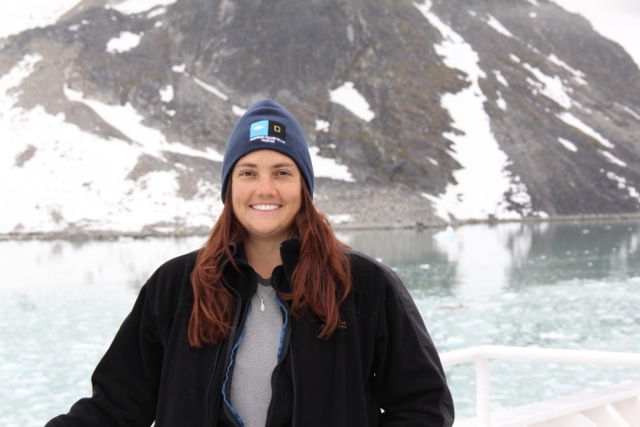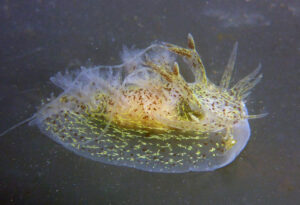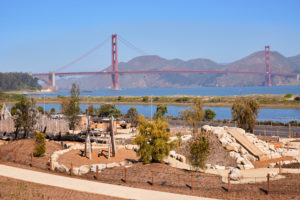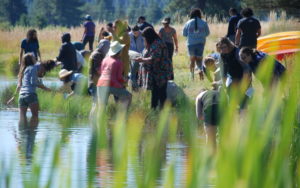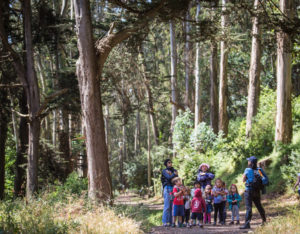“Phenology studies the seasonal cycles in nature, such as when flowers bloom, insects hatch, and birds migrate. In the era of climate change, the science of seasonal observation has taken on a new urgency.” – Jacoba Charles, “The Phenology Project”, Bay Nature
Rona is co-founder of the New Leaf Leadership Academy, an innovative program within Vicente Martinez High School, an alternative high school in Martinez. New Leaf emphasizes out-of-the-box thinking and hands-on learning through environmental studies. Zollinger, who also teaches at the Academy, was named the 2012-13 Teacher of the Year for both the City of Martinez and Contra Costa County.
BN: How did you get to the Bay Area?
Zollinger: I grew up in the Wasatch Mountains in Utah and got married when I was very young. My husband and I moved with my daughter to San Diego where I earned a teaching credential from San Diego State University in 1998. My first two years of teaching in San Diego were not the kind of teaching I wanted to do, large classes in large schools. In 2000 I got divorced and moved to San Francisco.
BN: What motivated you to develop the New Leaf Leadership Academy?
Zollinger: I had a dream of really connecting with students. I wanted them to understand that our future does not have to be like our past, and that there are ways we can change our mindset about the stories we tell. For a very long time we’ve been telling a story about humans dominating the earth. There are other stories to tell, such as being a partner with the earth. I had a vision of classroom experience based on the practice of earth-partnership values. That’s how the Environmental Studies Academy (now the New Leaf Leadership Academy) came about.
BN: How does New Leaf fit into the regular high school curriculum?
Zollinger: Students choose a variety of environmental projects and balance them with their core subjects. At the end, they graduate with a regular high school diploma, but it’s earned in a radically different way.
BN: Describe some projects students do at New Leaf.
Zollinger: They’ve participated in the California Phenology Project, which enlists regular citizens to study how climate change is impacting our natural habitats; they’ve monitored wildlife habitat on Muir Heritage Land Trust properties; they’ve planted school gardens at Vicente Martinez High School; and they’ve spoken at public meetings to support healthy schools in their district. Last weekend they helped clean up the Martinez Regional Shoreline as part of California Coastal Cleanup Day.
BN: You have done so many wonderful things—teacher of the year twice, co-founded a highly regarded program; it’s impressive. What’s next?
Zollinger: I’m on the verge of beginning a pilot program called the New Leaf Mentoring Program. It’s designed to inspire teachers who work with at-risk populations to create their own programs that are modeled on New Leaf. A group of these educators will receive coaching through workshops and in their classrooms. In the spring of 2014 we will offer a series of five free workshops open to anyone who wants to learn how to create a hands-on learning program.
BN: How did this new project come about?
Zollinger: My PhD research at the California Institute of Integral Studies was a study of the Environmental Studies Academy. I showed that students who are engaged in hands-on, place-based learning focused on the earth, do better in school: Their GPA and attendance increase and disciplinary issues decrease. The community was very pleased and supportive of the program, and, as a result, Contra Costa County awarded us a substantial grant to help the County address mental health issues for at-risk populations.
BN: What are the goals underlying your work?
Zollinger: My personal and professional goals are to inspire change that leads to a healthy and sustainable future. When I say “sustainable,” I mean not only ecologically, but also understanding how humans work together, the decisions we make, and how we interact.
In addition to the mentoring program, we’re starting a nonprofit organization that will facilitate projects with the schools and the broader community. For example, inspired by the Community Science Workshop in San Francisco, we want to create a place where people can come and design experiments. The goal is to have a science workshop with a similar spirit in all the schools in Martinez, as well as one in the City both afterschool and on weekends. We’re starting our first one at John Muir Elementary.
BN: What is your greatest success?
Zollinger: My daughter.
BN: Okay, but what is your greatest professional success?
Zollinger: Learning to see the potential in things that are perceived as obstacles, and not giving up in those moments. For example, I left teaching in the traditional classroom after a couple of years, like so many people who become teachers. However, I saw that as an opportunity to be innovative rather than just give up teaching altogether.
BN: What is your greatest challenge with the work that you do?
Zollinger: Patience with change. It takes a lot of time for people to trust new ideas and innovative processes, and allow them to become part of an institution. Schools are very slow to make dramatic change; they’re very comfortable with tradition. It takes time to build the relationships, the trust, the network, and the community to move things forward.
BN: What is your favorite outdoor destination in the Bay Area?
Zollinger: The shoreline of Point Reyes National Seashore is very dear to my heart. That is where I go to renew myself, in the space where the forest meets the ocean.

